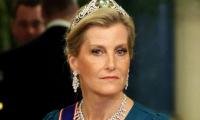Alarming rise in obesity, diabetes sparks call for urgent policy action in Pakistan
Pakistan is grappling with a concerning surge in overweight, obesity, and diet-related non-communicable diseases (NCDs), with more than 40 percent of its population falling into the obese or overweight category.
Startling statistics reveal that the prevalence of overweight among children under five has nearly doubled from 2011 to 2018, experts said on Wednesday.
Pakistan leads globally in diabetes prevalence, with a staggering 33 million individuals currently living with the condition, they said and warned that without immediate policy interventions, this figure is projected to skyrocket to 62 million by 2045.
The consumption of sugary drinks and ultra-processed products, notorious for their high sugar, salt, and trans-fat content, stands as a significant contributor to this epidemic of obesity and related NCDs, they added.
These concerns were raised at an awareness session held in connection with World Obesity Day, jointly organized by the Pakistan Nutrition & Dietetic Society (PNDS) and the Pakistan National Heart Association (PANAH) at a local hotel in Karachi, which brought together esteemed experts, health professionals, policymakers, and media representatives.
Major General Masud ur Rehman Kiani, president of PANAH, emphasized the critical need for urgent policy actions to mitigate the risk of obesity in Pakistan. He highlighted the detrimental impact of unhealthy diets, advocating for higher taxes on ultra-processed foods to curtail their consumption.
Professor Dr Abdul Basit, general secretary of the Diabetic Association of Pakistan, underscored Pakistan’s significant burden of type 2 diabetes and called for a comprehensive approach to combat the rising tide of diabetes. He urged for strategies such as front-of-pack warning labels (FOPWL) and marketing restrictions on sugary drinks and ultra-processed foods, particularly in school environments.
Fayza Khan, president of the Pakistan Nutrition and Dietetic Society, emphasized the detrimental effects of sugary drinks on metabolism and the promotion of excess calorie intake, leading to obesity and type 2 diabetes. She stressed the importance of adhering to World Health Organisation recommendations on daily sugar, salt, and trans-fat intake.
Sanaullah Ghumman, general secretary of the Pakistan National Heart Association, outlined PANAH’s campaign to reduce the consumption of ultra-processed foods. He emphasized collaborative efforts with policymakers to formulate effective policies and proposed increased taxes on sugary drinks in conjunction with the Diabetic Association of Pakistan and the PNDS.
In conclusion, the experts said urgent and concerted policy actions are imperative to address the escalating crisis of obesity and diabetes in Pakistan. These initiatives not only aim to raise public awareness but also advocate for tangible measures to combat the growing burden of NCDs, safeguarding the health and well-being of the nation.
-
 Prince Harry Receives Praises For Exposing Dark Side Of British Tabloids
Prince Harry Receives Praises For Exposing Dark Side Of British Tabloids -
 Andrew Forces Beatrice, Eugenie To Lose $60 Million Safety Net Saved For Retirement
Andrew Forces Beatrice, Eugenie To Lose $60 Million Safety Net Saved For Retirement -
 Nvidia CEO Jensen Huang To Visit China To Push Re-entry Into AI Chip Market
Nvidia CEO Jensen Huang To Visit China To Push Re-entry Into AI Chip Market -
 U.S. On Verge Of Losing Measles-free Title Due To Outbreak
U.S. On Verge Of Losing Measles-free Title Due To Outbreak -
 Harry Styles Excites Fans As He Announces Release Date Of New Song
Harry Styles Excites Fans As He Announces Release Date Of New Song -
 Japan’s Ex-PM Shinzo Abe’s Killer Is Set To Be Sentenced: How Much Punishment Could He Face?
Japan’s Ex-PM Shinzo Abe’s Killer Is Set To Be Sentenced: How Much Punishment Could He Face? -
 Prince Harry, Meghan Markle’s Return To UK Could Create Royal Family Dilemma
Prince Harry, Meghan Markle’s Return To UK Could Create Royal Family Dilemma -
 Prince Harry Turns Troubled With No Sense Of Home: ‘Isolation Is Getting To Him Mentally’
Prince Harry Turns Troubled With No Sense Of Home: ‘Isolation Is Getting To Him Mentally’ -
 Vitamin D Link To Respiratory Diseases Will Shock You
Vitamin D Link To Respiratory Diseases Will Shock You -
 A$AP Rocky Gives His Take On Children's Budding Personalities
A$AP Rocky Gives His Take On Children's Budding Personalities -
 Elijah Wood On Return To 'Lord Of The Rings' Universe
Elijah Wood On Return To 'Lord Of The Rings' Universe -
 Princess Beatrice, Eugenie Resort To Begging Sarah Ferguson: 'It'll Bring Disaster For The Whole Family'
Princess Beatrice, Eugenie Resort To Begging Sarah Ferguson: 'It'll Bring Disaster For The Whole Family' -
 Jenny Slate Hails Blake Lively Amid Lawsuit Against Justin Baldoni
Jenny Slate Hails Blake Lively Amid Lawsuit Against Justin Baldoni -
 Sophie Wessex Shares 'frustration' From Early Days In Royal Family
Sophie Wessex Shares 'frustration' From Early Days In Royal Family -
 Jason Momoa's Aquaman Unseen Snap Revealed
Jason Momoa's Aquaman Unseen Snap Revealed -
 Prince Harry Taught Only Way King Charles 'will Take Him Seriously'
Prince Harry Taught Only Way King Charles 'will Take Him Seriously'




